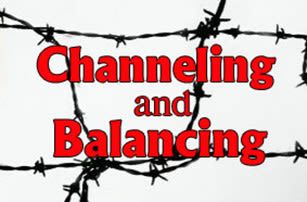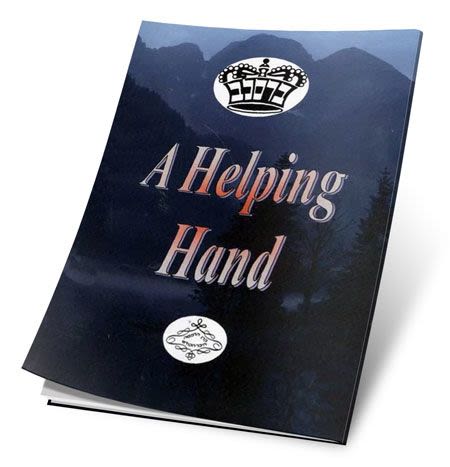
Channeling and Balancing
They were lying, exhausted, on the bare ground, staring into nothingness, when they suddenly heard someone call out, ‘Bais Yaakov girls! Come to the barracks!’

They were lying, exhausted, on the bare ground, staring into nothingness, when they suddenly heard someone call out, ‘Bais Yaakov girls! Come to the barracks!’
There are many amazing stories about the late Rebbetzin Rivkah Pincusewitz. A student of the legendary Frau Sarah Schenirer, who pioneered Jewish education for women, Rebbetzin Pincusewitz encouraged and strengthened her fellow inmates in the concentration camps. Immediately after the liberation, Rebbetzin Pincusewitz perceived the need to rebuild the shattered spiritual lives of the survivors and organized a Bais Yaakov in the ruins of Bergen-Belsen.
Rebbetzin Pincusewitz’s niece says, “In many ways, the days immediately following liberation were the worst days of the war, because it was only then that the prisoners realized that their entire world had vanished. There was nothing left, and the girls were convinced that just as their entire world had been destroyed, Torah-true Judaism had also been destroyed. They were lying, exhausted, on the bare ground, staring into nothingness, when they suddenly heard someone call out, ‘Bais Yaakov girls! Come to the barracks!’ It was my aunt, Rivkah Horowitz, gathering the girls to teach them Torah, to renew their spirituality, to help them rediscover their Jewish souls. She felt that she had the responsibility of continuing her mentor’s legacy of conveying to Jewish girls that there is more to life than the material world.”
A Jewish officer who was among the allied forces that liberated the camp related that when he asked Rebbetzin Pincusewitz if there was anything he could do for her and her group of students, he was positive that she would request clothes or food. After all, the girls were emaciated and dressed in rags. To his surprise, she asked for siddurim (prayer books) and Chumashim (Jewish Bibles)!
One of Rebbetzin Pincusewitz most courageous struggles involved convincing the allied authorities that the newly-liberated camp residents were entitled to kosher food. This was at a time when most of the former prisoners were grateful to have any food; kosher food was considered a luxury. The authorities promised that if at least 50% of the camp residents would sign a petition requesting the establishment of a kosher kitchen, they would be willing to comply. Rebbetzin Pincusewitz convinced an overwhelming majority of the residents to sign the petition, which resulted in the establishment of a kosher kitchen in Bergen-Belsen!
Rebbetzin Pincusewitz also petitioned the allies to supply her with sewing machines and material. When these provisions arrived, she and her students went to work sewing yarmulkes and tzitzit for the male camp residents.
While still in Bergen-Belsen, Rebbetzin Pincusewitz wrote a beautiful letter to the American Agudath Israel activist, Mike Tress. In it she explained that since she was privileged to survive the Holocaust, she felt her task in life was to rebuild and rejuvenate Torah-true Judaism.
REBUILDING TORAH
So how did Rebbetzin Pincusewitz rebuild and rejuvenate Torah-true Judaism? Did she open a new girls’ yeshiva? Did she make major inroads in the Jewish educational system? Did she deliver lectures on Torah to women and girls throughout the world? Did she create some vast monument to the heroism of Jewish women throughout the ages?
Rebbetzin Pincusewitz married and built a beautiful family. She understood that the crux of “rebuilding and rejuvenating Torah true Judaism” is the home! She channeled her tremendous talents into creating a home – a full and vibrant Jewish home.
We live in a superficial world where people are constantly trying to impress each other, while forgetting the true values of life. Jobs are given fancy titles to make them appear more prestigious. People feel that they have to be doing something important, and that others must be aware of that fact – and then they define themselves by their titles, rather than who they really are ! The quiet and modest rejuvenating of the Jewish people that occurs in the process of creating a true Jewish home is somehow considered subservient to a career and “doing” something in the outside world.
A rabbi lecturing on “The Jewish attitude towards the women’s liberation movement,” pointed out that there is no contradiction between being an orthodox woman and being a professional. “Plenty of religious women,” he said, “are doctors, lawyers, and educators.”
One of the women in the audience raised her hand. “And what does YOUR wife do?” she challenged him.
“My wife?” the rabbi asked. “She administers a home for unwanted children.” He then proceeded to describe her manifold duties – from financial planning to psychological counseling. All the women in the audience were duly impressed. It was obvious that the rabbi’s wife held an important position and was a truly liberated woman.
One of the women asked, “Rabbi, where do you find the unwanted children?”
“They’re ours,” he grinned. “I don’t think anyone but my wife and I would want them.”
With his sharp, humorous response, the rabbi demonstrated the fallacy of feminism and the so called women’s liberation movement. Yes, there is no reason why women cannot be professionals. I live in a very orthodox section of Jerusalem. My downstairs neighbor is an architect, my next door neighbor lectures to Jewish women throughout the country, one upstairs neighbor is an optometrist, and in addition to running a business, she teaches optometry in the university. Another upstairs neighbor is in charge of preschool special education in Jerusalem. Yet, all of these women view their professions as secondary to their primary task of building a Jewish home. Instead of defining themselves by their professional status, they view their professions as what they do for a living, rather than their essence.
With that outlook, the woman who chooses to remain at home, taking care of home and family has as “prestigious” a position, if not a more prestigious position, than the doctor, lawyer, or Indian chief!
A friend of mine, an internationally known lecturer and writer told me the following story that illustrates this idea:
Mrs. Levi (not her real name, of course) was standing at the kitchen sink, cutting chickens for the Shabbat meals when the doorbell rang. Wearing an old, comfortable skirt and blouse, covered with an apron, she looked like a typical housewife. “Come on in,” she called out, while deftly continuing to quarter and clean the half dozen chickens that were piled on the counter.
A stranger entered. “I’m from the Census department,” he introduced himself. “The State of Israel is presently conducting a national census, and as part of that census I would like to ask you a few questions.”
Using very simple terminology, he proceeded to explain the meaning of the word “census” and then began asking her several questions, such as country of origin, number of children, family income, etc.
“He was speaking to me,” Mrs. Levi said, “as if I was some type of a moron, with, at the most, a third grade education. He assumed that I was ‘just’ a housewife, and that, of course, meant that I was stupid. All that changed, however, the moment he asked my occupation and I replied, ‘College lecturer and writer.’ His eyes literally popped out! Instead of talking down to me, he began relating to me as an equal, and perhaps there was even an undercurrent of respect in his voice.
“But I remain the same person when I clean chickens as when I lecture at the university. On an external level, however, I appear to be someone else. As a lecturer, people assume I am intelligent and that I have something important to say. Yet I put as much, if not more intellectual creativity into my family than I do into my work. But the moment I’m perceived as a housewife, people assume that I cannot think beyond the amount of salt to put in the soup or how to get the stains out of my daughter’s skirt. I am judged by my position, rather than by who I really am. The real challenge, however, is for us to judge ourselves by who we really are, rather then by externalities – how others perceive us.”
* * *
The real things in life are internal, and therefore lack external prestige. “Hello, I’m Mrs. Edith Smith, a mother and wife” sounds a lot less important than, “Hello. I’m Dr. Edith Smith, head of the Oncology Department at…” Yet both Mrs. Smiths are involved in saving lives – after all, children who grow up in a loving, warm home have a much better chance of becoming mentally healthy adults. But, Mrs. Smith the oncologist receives greater accolade, even if, as a result of her dedication to her patients her family suffers emotional deprivation!
The moment, however, we define ourselves by our profession, rather than by our essence, we end up doing things so that others can applaud us, rather than because it is the correct thing to do. How many people are happy to help others out of the house, yet ignore their own families?
We do not receive publicity for building a family and creating a strong, loving home although that is one of the most challenging and satisfying undertakings possible. Creativity, resourcefulness, ingenuity, originality, and, of course a strong vision, are prerequisites. If we define ourselves as who we are, rather than what we do, we will, with God’s help, find the clarity to channel our talents and energies properly.
Yes, both worlds, our internal world and our external world, are important. The key to success, however, is to keep our external world in check, so we can develop our internal world, and remembering that our internal world is as important, if not more important that our external world. May Hashem help each of us to make the right decisions to keep our lives in balance.







Tell us what you think!
Thank you for your comment!
It will be published after approval by the Editor.